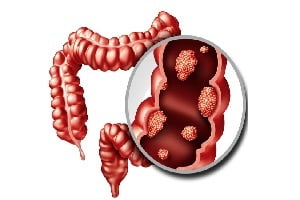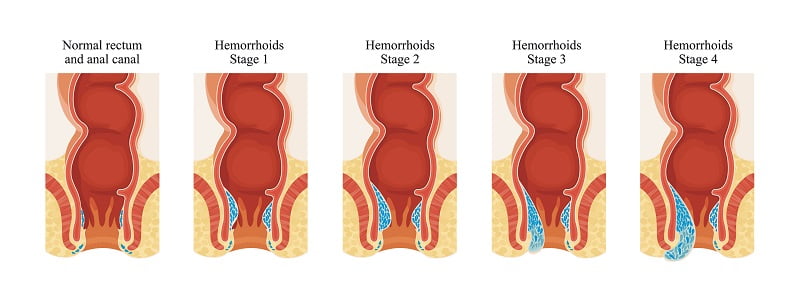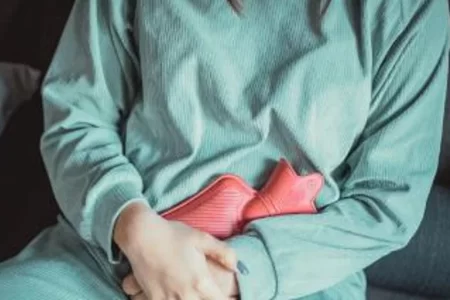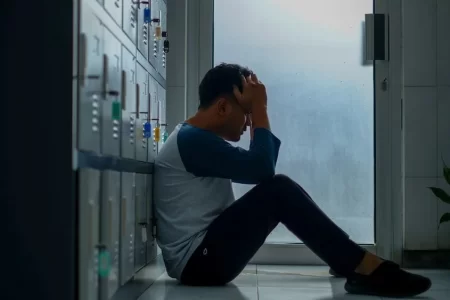All You Need to Know About Lump Near Anus
- Updated on: Jul 13, 2024
- 6 min Read
- Published on Apr 19, 2021

Lump on the Anus: Is it Serious?
This is kind of an embarrassing question. Most people sometime in their lifetime note that there is something unusual just outside of their anus. It sometimes grows like a pea. When they touch it, it is hard but smooth, and it hurts a little.
They are concerned about what it could be and what should they do about it. It can be a mild fissure that goes away after a few days even without treatment or may be a sign of a potentially serious condition such as a colon cancer. Is this like some kind of cancer or hemorrhoid or some infection?
What Does a Lump Near the Anus Mean?
A lump or swelling that is painful and appears suddenly over a day or two may be caused because of many reasons such as an injury or an infection. It may also be a hemorrhoid.
Hemorrhoids are vascular structures present in the anal canal that can be very painful. In normal condition, hemorrhoids work as cushions that help in bowel control. If you are susceptible to the risk factors for hemorrhoids, the anal lump may be due to hemorrhoids.
It’s more likely to be an infection if the skin around this lump is red and warm.
The most common form of anal abscess is a perianal abscess. This generally develops as a painful swelling near the anus. It may be red in color and warm in touch. Anal abscesses may be located deeper under the tissue, but these are less common and may be less visible or not visible at all.
Causes of Anal Abscess And Small Lumps Near Anus
An anal swelling or lump can form due to any of the following reasons:
- Hemorrhoid (piles):This is one of the common reason of why you develop lumps on anus. But it may not always be hemorrhoids. Other causes are also possible. Generally, patients suffering from symptoms that are related to the anus incorrectly assume that they are due to haemorrhoids. Lockhart-Mummery once said in his statement that “nearly every lesion around the anus is liable to be called ‘piles’ by the patient and not infrequently by the referring doctor also”. This practice is common even today.
- Blood blisters
- Blocked anal glands
- An anal fissure or a tear in the anal canal
- Sexually transmitted infections
- Signs of colon cancer (colorectal cancer)
- Perianal Hematomas: These are very similar to hemorrhoids and are often misdiagnosed. They are actually a burst blood vessel near the anus, causing a pool of blood to form underneath the skin. These bumps are usually caused by straining or trauma to the area and can be very painful.
Signs and Symptoms of Anal Abscesses and Lumps
The main signs and symptoms of lumps near the anus are:
- Pain, which is generally constant. It becomes worse when sitting.
- Discharge of pus
- Constipation or pain during bowel movements
- Skin irritation around the anus
- Blood in stool
- Swelling, redness and tenderness of the area near anus
- Deeper anal fissures and lumps may be associated with fever, malaise, and chills.
How Does a Lump on Anus Look Like?
Lumps on anus can look different for different conditions. Sometimes, these lumps can be due to anal cancer. These may or may not cause any bleeding. It can appear as an extended mass around the anal opening or on the opening. The lumps could occur due to swollen lymph nodes or hemorrhoids. They may also look like abnormal pieces of extra mass extending from the surface. Some patients reported it as a soft flesh colored bump. Some bumps may be hard though.
In some cases the mass can indicate peri-anal skin tag, generally associated with chronic anal fissures called “sentinel piles”.
Sometimes, the swelling may not occur in the midline. In such cases, one may have to look for other differential diagnoses as it could be a hemangima, pyogenic granuloma, or a wart etc. It can be a perianal lump or abscess, which usually appears as a painful boil-like inflammation near the anus.
Can Anal Lump and Abscesses turn into Cancer?
Certainly. A lump in the anal region can be indicative of anal cancer, but not every anal lump is cancerous. Many benign conditions, like haemorrhoids, anal warts, and abscesses, can also cause lumps. It’s crucial for anyone noticing a new or unusual growth in the anal area to consult a physician for proper evaluation and diagnosis, as timely intervention can make a significant difference in outcomes.
Diagnosis and Testing of Lumps and Anal Abscesses
It’s best to get help of an expert doctor even if the signs are mild in identifying the real reason for your pea-sized bumps or lumps or abscesses. Though it may feel awkward to talk to a doctor, you should know that health care providers are trained professionals who can properly diagnose and treat these types of conditions. And this will hopefully relieve your concern.
A clinical evaluation including a digital rectal exam can diagnose an anal lump. Some patients may require additional tests to diagnose other conditions such as:
- Sexually transmitted infections
- Diverticular disease
- Inflammatory bowel disease
- Irritable bowel syndrome
- Colorectal cancer
In some cases, your doctor may also ask for an ultrasound, a CT scan, or an MRI scan.
Treatment of Anal Lumps and Anal Abscesses
Treatment of lumps depends on the cause and diagnosis. If it is an abscess, surgical drainage is important promptly, preferably before the abscess erupts. Anal abscesses can be drained in a doctor’s office using a local anesthetic.
Large or deeper anal abscesses may require hospitalization as they are operated under anesthesia.
If the anal lumps are hemorrhoids, you will need a treatment for hemorrhoids. Read about hemorrhoids treatment.
Locations Where Anal Abscesses or Lumps can Exist
A lump can be noted in one or more of these locations:
- A lump on anus periphery such as on anal opening or on the wrinkle region of the anus skin where the glands are located
- A lump near anus such as near anal sphyncters (around the anus) called lump on sphincter
- A lump inside the anus or slightly above anus
- A lump just outside the anus (external lumps)
What to Do If I Find Anal Lumps? When Should I Contact Doctor?
In most cases, anal lumps are not major concerns. In many cases, they may heal on their own. But if they do not go away in a few days (2-4 days), you should contact a doctor. Also, if you notice the following symptoms, it is recommended to get an expert diagnosis from a doctor and not rely on self-diagnosis.
- Pain, which does not go after a few days
- Discharge from the lump or nearby region
- Blood in stool or bleeding from the area in general
Why Is a Hard Lump Formed Near the Anus? What Does It Mean?
The area around the anus is usually made up of soft tissues. However, under certain conditions, these soft tissues become hard and may appear in the form of a hard lump. The anus is made up of different tissues, including nerves, blood vessels, mucous membranes, lymph nodes, etc. Any infection, blockage, or irritation to these tissues results in a hard lump formation. There are various causes behind anal hardness. Some of them may include:
- External hemorrhoids
- Anal warts
- Perianal hematoma
- Persistent constipation
- Anal cancer
- Perianal hidradenitis suppurativa
- Molluscum contagiosum
Painless Hard Anal Lump. What Does It Mean?
In most cases, lumps are painless and therefore not a major cause of concern. However, if the lumps persist for a longer time, then you should immediately seek medical intervention. Painless hard lumps near the anus are mostly caused due to the following reasons:
- Anal warts
- External hemorrhoids
- Molluscum contagiosum
FAQs
What Causes a Lump Near the Anus?
There are many reasons behind lump near the anus like hemorrhoids, anal warts, etc. Hemorrhoids may be caused due to the swelling of anus or rectum. Anal warts are caused due to an HPV (human papilloma virus) infection.
How Do I Treat a Lump on My Anus?
Accordion Sample Description The pain and discomfort caused by a lump or swelling on the anus can be relieved by:
- Using hemorrhoid creams containing phenylephrine
- Taking OTCs (over-the counter medications)
- Taking a sitz baths
What Shrinks Hemorrhoids Fast?
Hemorrhoids are often hard and associated with severe pain. You can get a relief from:
- Taking high-fiber diet
- Using hemorrhoid creams especially those rich in phenylephrine
- Taking pain relievers
- Taking warm or sitz bath
Can I Pop a Hemorrhoid?
Hemorrhoids are swollen and inflamed veins surrounding your anus, therefore you should never try to pop a hemorrhoid because it may worsen the condition.
Is Vicks Vaporub Good for Hemorrhoids?
Yes, vicks can be sometimes used for hemorrhoids because it helps in reducing the swelling and the inflammation in the anal veins and the associated pain. On applying, vicks causes a tingling sensation followed by cooling which helps in getting relief from the pain for several hours.













1 Comment
Very efficiently written article. It will be useful to anybody who utilizes it, as well as myself. Keep doing what you are doing – looking forward to more posts.